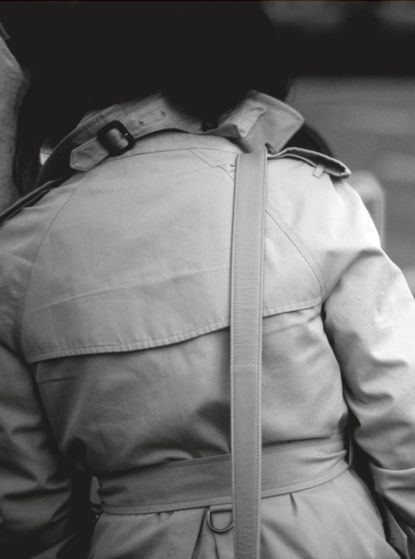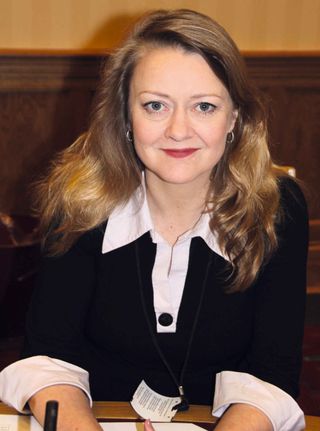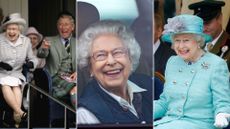How To Become A Spy

Female and over-forty? Then you're the ideal candidate to become a spy.
Want to know how to become a spy? Spy chiefs in MI5, MI6 and GCHQ should recruit more women - and could do worse than targeting middle-class mothers according to a recent goverment report, published by The Intelligence and Security Committee of Parliament (ISC), to rectify the fact that woman currently make up just over a third of Britain's spies.
The report suggested that mid-career mothers should be targeted for their emotional intelligence and 'valuable' life experience'. But what's it like to work as a female spy? And why do women make better spooks? We spoke to a former female spy to find out...

'Working for MI5 was incredibly isolating because I could never tell anyone what I was doing...'
Annie Machon, 46, is a former MI5 intelligence officer. She left in 1996. She and her former partner, David Shayler, became whistle-blowers the following year over what they saw as misconduct in the spy agencies.
'I never wanted to be a spy. After graduating from Cambridge University, I applied to the foreign office, dreaming of being an ambassador somewhere. I then received a letter on Ministry of Defence notepaper saying there were other jobs going that I would find more interesting.
I was summoned to a meeting in an unmarked building in London with a woman who looked like a hippy. She told me that the old days of the Cold War were out, and that terrorism, organised-crime and drug-busting were in. It sounded like an important job; I had always wanted to make a difference.
Sign up for the woman&home newsletter
Sign up to our free daily email for the latest royal and entertainment news, interesting opinion, expert advice on styling and beauty trends, and no-nonsense guides to the health and wellness questions you want answered.
Like everyone who is recruited to the intelligence services, I was asked to provide details of different friends from four different stages of my life. They interviewed them, and asked each of them for four more recommendations of people they could speak to about me.
The whole recruitment process took ten months, and then, in 1991, after two weeks of very basic training, I started my new job as an intelligence officer. My first posting was to the small counter-subversion section focused on Irish political terrorism. Day-to-day it was a desk job. I would be given targets to investigate and would then deploy different teams to complete them. Often I would send an agent to turn someone within a group and recruit them.
So you deploy the resources, analyse the information you get back and then recommend action, whether it be to arrest people, stop investigating the case, or work with the police to try and stop a bomb or something like that. You then have to write up a ministerial report that goes back to the government.
Spying might sound glamorous but I normally worked 9am-5pm. If there was a development on your patch though, you might be called back to work in the middle of the night by whoever was doing the night-shift on the investigation desk. This happened to me often.
The work is isolating because although nowadays you can tell close friends and family where you work, you risk imprisonment if you tell anyone about the actual work you do. As a result, you end up becoming incredibly close to your colleagues because they are the only people you can share your work with. This makes romantic relationships hard, but I was seeing David, also a member of MI5, at the time, so it helped being with someone who understood my work. I imagine it would be difficult doing it with a family though.
Consequently, you find yourself being constantly evasive talking with people. It's hard to maintain friendships and you're always suspicious of people who ask too many questions. It's as if a pane of glass appears between you and the real world.
Women are perfect for surveillance roles as people never suspect a woman is following them. Being a woman can work to your advantage too, when cross-examining people from other cultures where they don't expect a woman to have that role. The job I did required a huge amount of multitasking so recruiting women who do that on a daily basis is an excellent idea.
After three years at MI5 I was moved to the internation counter-terrorist division, and it was there that David and I witnessed a catalogue of errors and crimes; the illegal phone tapping of a journalist, the failure of MI5 to prevent the Israeli embassy in London in 1994, and the attempted assassination of Colonel Gaddafi. We resigned from MI5 and went public with our concerns in August 1997 to try and force an inquiry.
I have always believed that our decision to speak out was justified, but it didn't make a huge difference and that's what I always feared.
My advice to anyone wanting to join the intelligence services would be to make sure you have a strong ethical framework because some of what goes on can be very shady - and it's all to easy to go careening down the wrong path.'
-
 32 candid photos of Queen Elizabeth II that showcase the late monarch's less serious side
32 candid photos of Queen Elizabeth II that showcase the late monarch's less serious sideThe late Queen had lots of serious duties, but she was never afraid to show her funnier, more light-hearted side
By Amy Hunt Published
-
 The best candid pictures of the Prince and Princess of Wales having a great time together
The best candid pictures of the Prince and Princess of Wales having a great time togetherThe Prince and Princess of Wales aren't just man and wife - they're best friends who always have a fun time together
By Jack Slater Published